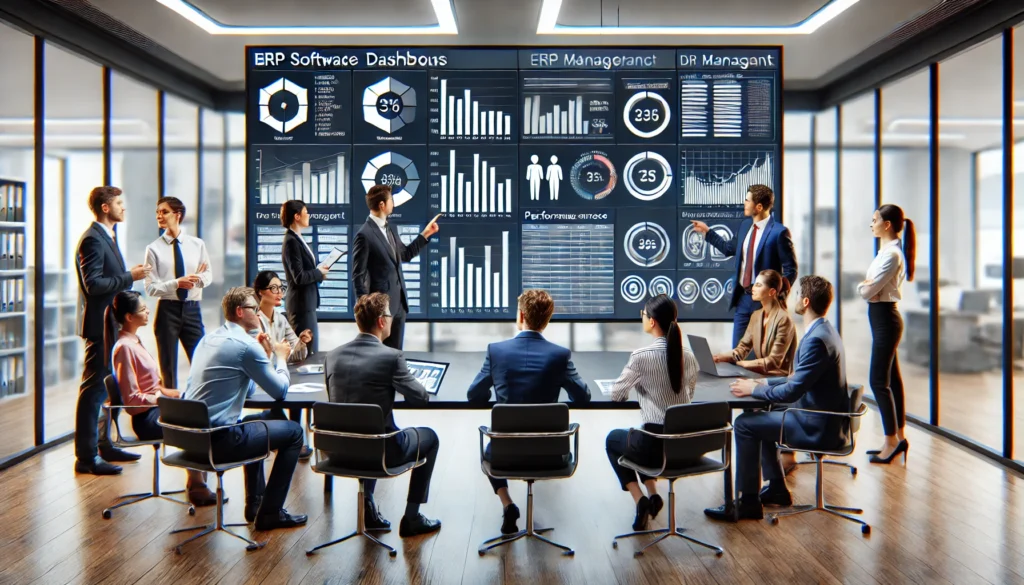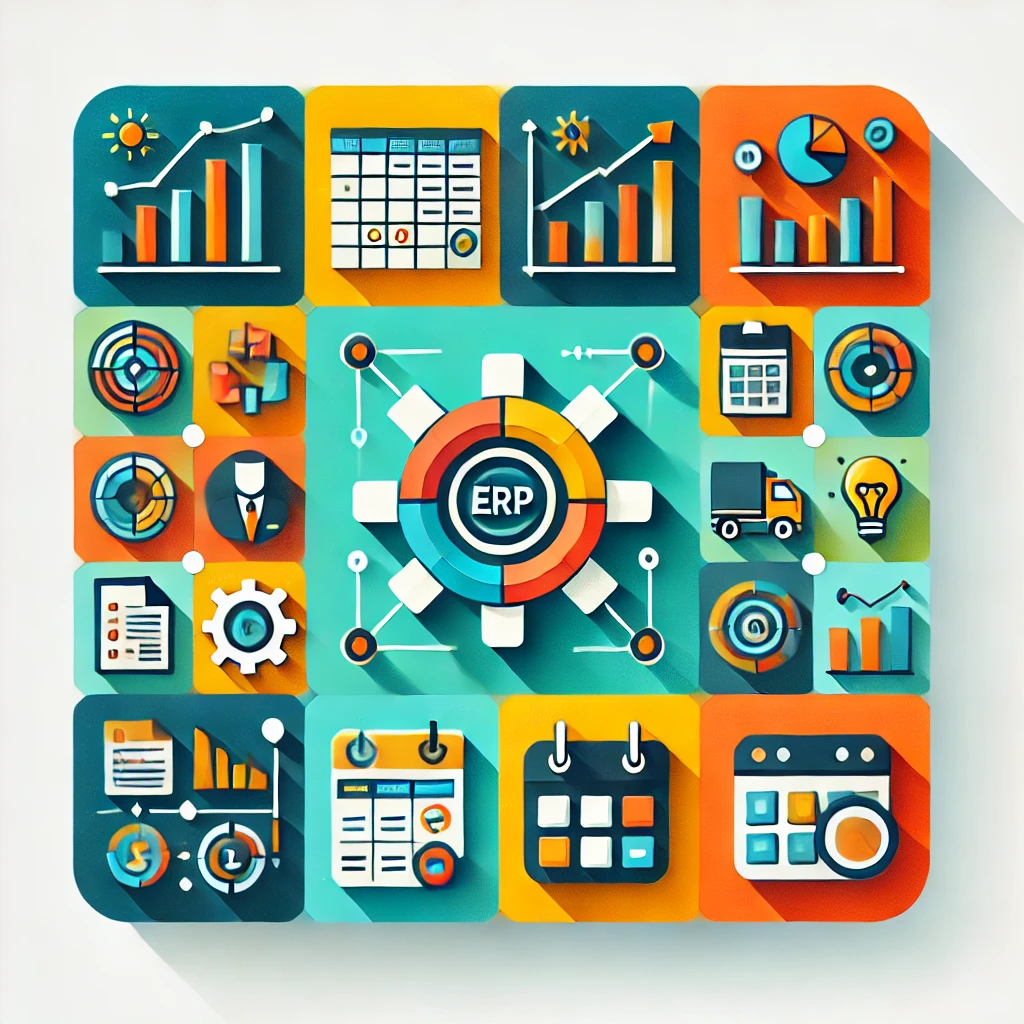The Importance of ERP in Human Resource
Management and Productivity Improvement

In the rapidly evolving business landscape, efficiently managing human resources has become more vital than ever. Companies are increasingly turning to Enterprise Resource Planning (ERP) systems to streamline their HR processes and boost productivity. ERP systems integrate various business processes, allowing for more efficient management of resources, including human capital. By centralizing data and automating routine tasks, ERP solutions play a vital role in enhancing workforce productivity and organizational efficiency. This article delves into the importance of ERP systems in managing human resources and improving productivity, exploring their benefits, functionalities, and real-world applications.
Understanding ERP and Its Role in HR Management
Key Features of ERP Systems for HR
Benefits of Using ERP in Human Resource Management
How ERP Improves Productivity and Efficiency
Real-World Applications of ERP in HR
Challenges and Considerations in Implementing ERP for HR
Future Trends of ERP in Human Resource Management
Understanding ERP and Its Role in HR Management
ERP, or Enterprise Resource Planning, is an integrated software platform used to manage a company’s core business processes, such as finance, supply chain, operations, and human resources. In HR management, ERP systems provide a centralized platform that consolidates data and processes related to employee management, payroll, recruitment, performance tracking, and more. This integration allows HR professionals to have a holistic view of the workforce, making data-driven decisions easier and more accurate
Key Features of ERP Systems for HR
ERP systems come with a suite of features specifically designed for HR management, including
Employee Information Management: Centralized database for storing and managing employee information, such as contact details, employment history, and performance records
Payroll and Compensation Management: Automates payroll processes, tax calculations, and compensation management, reducing errors and ensuring compliance with labor laws
Recruitment and Onboarding: Streamlines the recruitment process by automating job postings, applicant tracking, and onboarding processes
Performance Management: Tools for setting goals, tracking performance, and conducting evaluations, aiding in talent development
Time and Attendance Tracking: Automates the tracking of employee attendance, leaves, and working hours, improving accuracy and reducing administrative burdens
Benefits of Using ERP in Human Resource Management
Implementing an ERP system in HR management brings numerous benefits, including
Improved Data Accuracy: With centralized data, the risk of errors is minimized, ensuring more accurate and reliable HR reporting and analytics
Enhanced Decision-Making: ERP systems provide real-time data, enabling HR managers to make informed decisions about hiring, promotions, and workforce management
Operational Efficiency: Automation of routine tasks reduces the administrative workload, allowing HR staff to focus on more strategic initiatives
Compliance and Risk Management: ERP systems help ensure compliance with employment laws and regulations by maintaining up-to-date records and generating necessary reports
Better Employee Engagement: By streamlining processes like onboarding and performance reviews, ERP systems can contribute to a more positive employee experience
How ERP Improves Productivity and Efficiency
ERP systems significantly boost productivity by automating repetitive tasks and providing a single source of truth for all HR-related data. This results in
Reduced Time on Manual Processes: Tasks such as data entry, payroll processing, and report generation can be done faster with ERP automation
Improved Communication and Collaboration: With integrated modules, different departments can access the same information, reducing misunderstandings and fostering better teamwork
Enhanced Resource Allocation: Real-time data helps in identifying skill gaps and reallocating resources effectively, leading to better project management and overall productivity
Real World Applications of ERP in HR
Many organizations have successfully implemented ERP systems to transform their HR operations. For instance
Case Study of a Manufacturing Company: A leading manufacturing company implemented an ERP solution to automate its HR processes, resulting in a 30% reduction in time spent on payroll management and a 20% improvement in employee satisfaction
Case Study of a Service-Based Company: A service-based organization integrated ERP with its HR processes to improve recruitment and onboarding efficiency, reducing time-to-hire by 50% and improving new hire retention rates
Challenges and Considerations in Implementing ERP for HR
While ERP systems offer numerous advantages, there are also challenges to consider
High Initial Investment: Implementing an ERP system can be costly, requiring significant upfront investment in software, hardware, and training
Complex Implementation Process: The process of integrating ERP into existing systems can be complex and time-consuming
Change Management: Employees may resist changing from familiar processes to new, automated systems, necessitating comprehensive training and support
Data Security Concerns: As ERPs centralize sensitive employee information, robust cybersecurity measures must be in place to protect against data breaches
Future Trends of ERP in Human Resource Management
The future of ERP in HR is shaped by emerging technologies and evolving business needs. Key trends include
Integration with AI and Machine Learning: Predictive analytics for better decision-making in recruitment, retention, and talent management
Cloud-Based ERP Solutions: Increased adoption of cloud-based ERP systems for greater flexibility, scalability, and cost-effectiveness
Focus on Employee Experience: ERPs will evolve to offer more features focused on employee engagement and satisfaction, such as self-service portals and personalized dashboards
Enhanced Mobile Access: Mobile-friendly ERP solutions to cater to the growing remote workforce and improve accessibility for HR tasks on the go
Conclusion
ERP systems have become indispensable tools for modern HR management, helping organizations streamline operations, improve decision-making, and enhance productivity. By leveraging ERP solutions, businesses can stay competitive in a rapidly evolving market while fostering a more engaged and efficient workforce. The key to successful ERP implementation lies in understanding organizational needs, choosing the right solution, and managing the change effectively. As technology continues to evolve, the future of ERP in HR management looks promising, with even more capabilities to optimize human resources and drive business success





